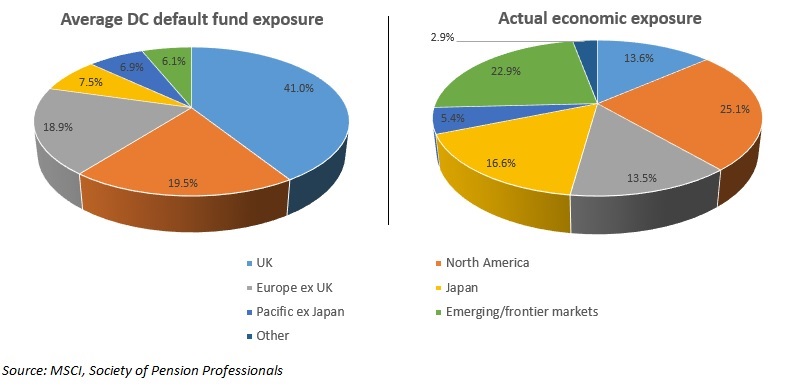Investors may have a far lower exposure to their domestic market than they expect, according to new research.
The report, commissioned by the UK’s Society of Pension Professionals (SPP), showed that the equity allocation of defined contribution (DC) default funds typically had a far greater exposure to emerging markets and Japan than the geographic data shown to investors indicates.
“At the same time, the bias towards ‘home’ country companies is declining as professional investors expand their options.” —Steven Kowal, MSCIThe SPP reported that, while DC default funds on average allocated 41% of their equity exposure to the UK market, only 13.6% of companies’ total revenue was sourced in the UK, according to analysis of indices by MSCI.
Funds allocated an average 6.1% to emerging and frontier markets, but the global nature of companies listed elsewhere meant the average fund had an underlying exposure of 22.9% to this sector.

MSCI’s Steven Kowal, executive director in the firm’s index business, said the country in which a company is listed “is becoming increasingly less relevant than where its revenues are derived”.
“At the same time, the bias towards ‘home’ country companies is declining as professional investors expand their options,” he added.
Olivier Lebleu, head of international business at Old Mutual Asset Management, which contributed to the report, said the data was “lifting the veil” on DC default fund construction as savers’ reliance on this form of pension saving increases.
“While the UK weighting by economic exposure is significantly below that suggested by an analysis of listings,” added Duncan Buchanan, president of the SPP, “we should remember that according to the 2013 IMF [International Monetary Fund] figures the UK only contributes 2.28% to global GDP, so a lower allocation in a globally diversified portfolio may actually be more appropriate.”
Related Content:Home Country Bias: A Ranked List of Nations & Global Pension Fund Assets Hit $32 Trillion in 2013
